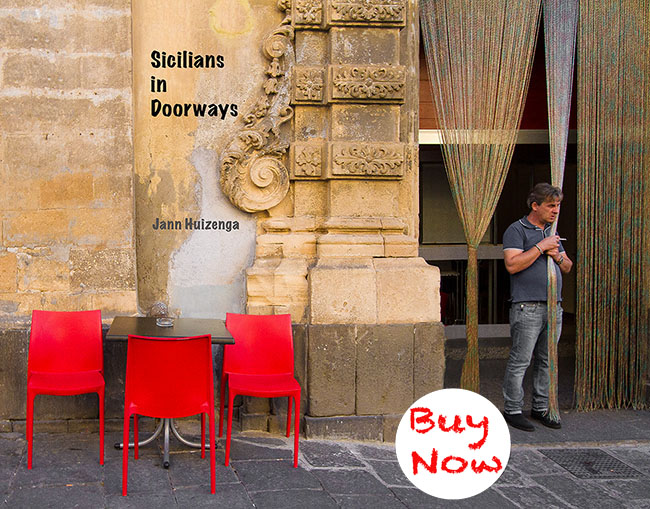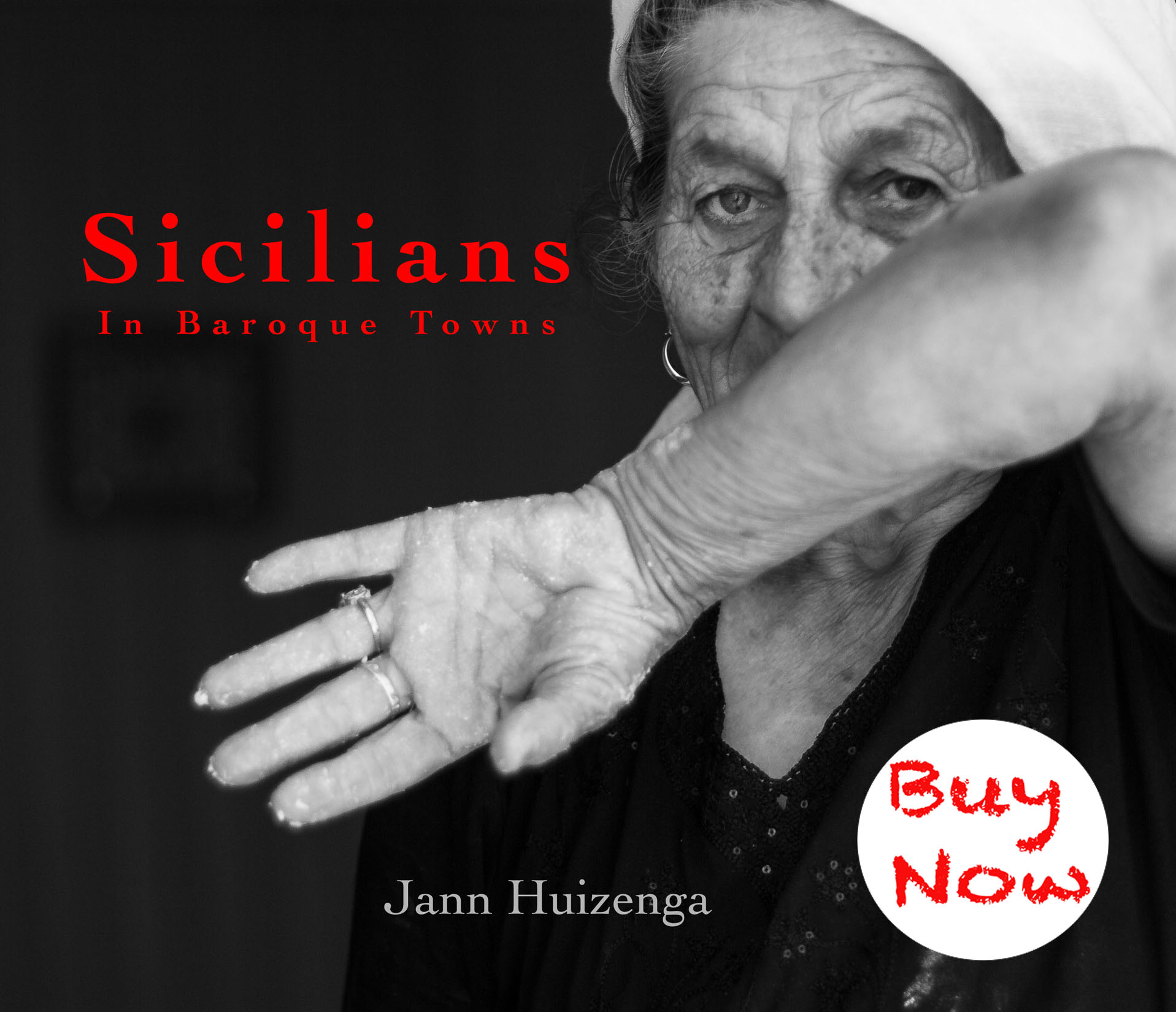December 18, 2010
My first Christmas in Sicily. Things are low-key and I’m lovin’ it. The bar has dangled a few nonchalant stars; the barista wears a red tie . The (horse) butcher has lined his doorway with a handful of twinkle-lights. Poinsettias redden the piazza.
Things at the supermercato have reached a fever pitch, though. Christmas cakes in hat boxes—piled high on skids everywhere you look—teeter alarmingly, threatening to bury you alive under mounds of butter and lard. Friends tell me Sicilians start gobbling the cakes (called panettone or pan d’oro) at the end of November. By Christmas, they’re so bloated they can’t look at a hat box.

Which one to get?
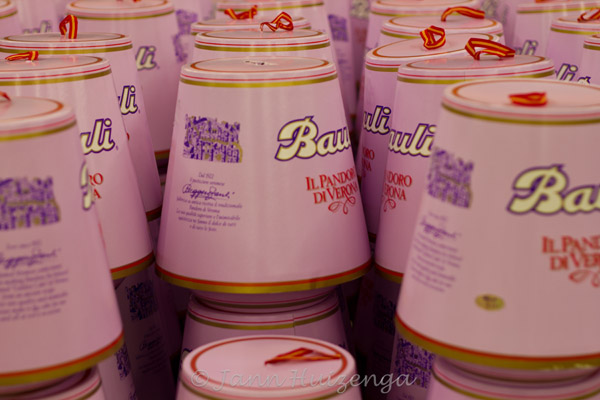
Chocolate with orange nibs? Laced with Grand Marnier? Cointreau? Nuts? Truffles? A Mister Chocolate?
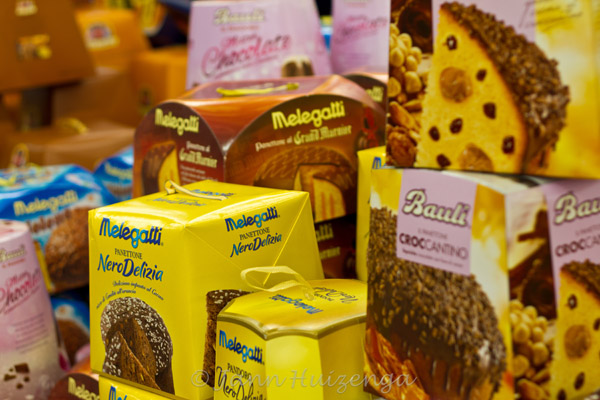
How about a cake with a bottle of bubbly enclosed? My head spins.
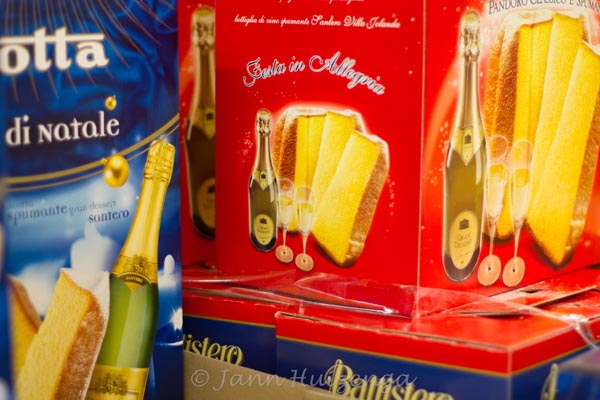
I finally close my eyes and point. I pick the classic—a spongey-eggy poof studded with oranges and raisins (OK, I’m boring). Wish I were sharing this monster with you!!
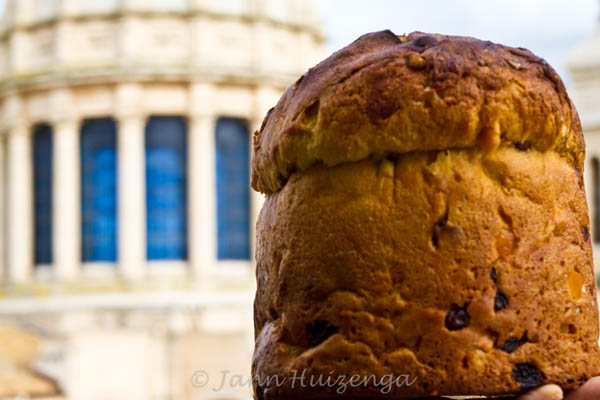
***
If you’d like to subscribe, click here.
October 23, 2010
Forests of prickly pears glitter with sunset-colored fruit: burning orange and deepest pink. The fall crop is so abundant in Sicily that most of it plops down onto roadways to rot in the sun—roadkill for nectar-seeking wasps and honeybees.
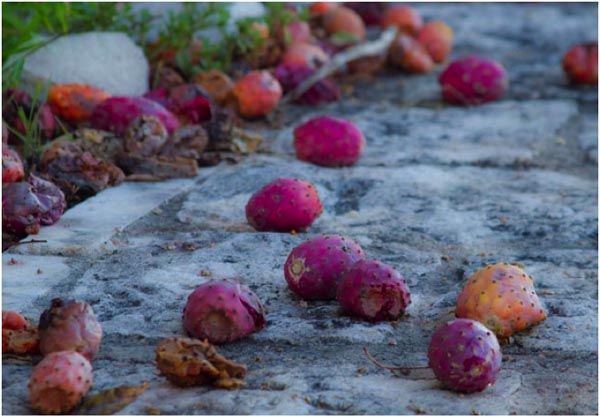
I gave the prickly pear, called fico d’india—literally, fig of India—the cold shoulder for quite a while after my first experience peeling one. Who knew to put on gloves? The invisible barbs lodged deep into my fingertips. I spend hours armed with tweezers squinting on my sunlit balcony, extracting them one by one.
But now I’ve found a happy solution: I drink my prickly pears.
Either in liqueur form …
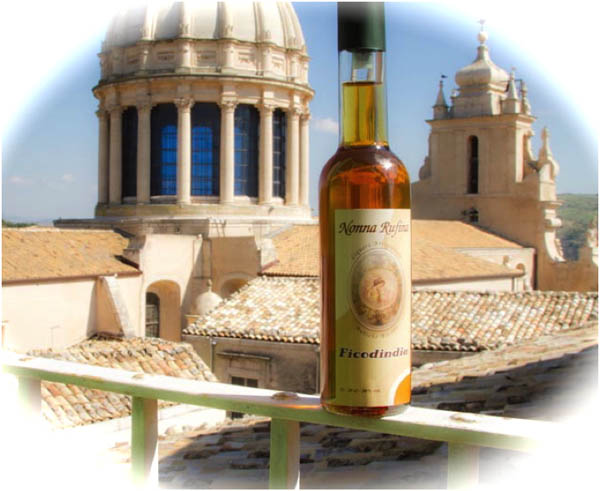
… Or in sweet granita—seeds and all. It tastes like watermelon juice imbued with banana-y blood oranges. Of course I worried that a prickly pear plant would sprout in my stomach after this granita, but so far so good.
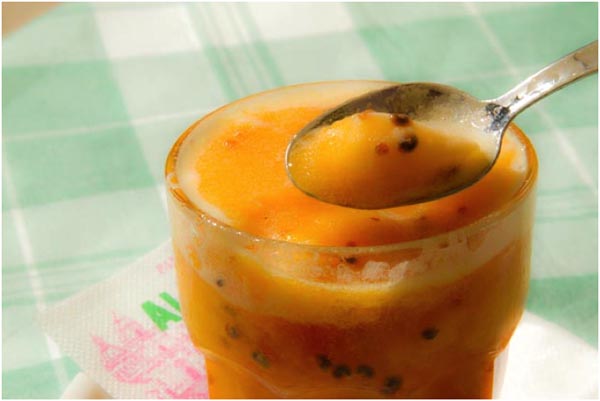
Have you tried the prickly creatures? Discovered a danger-free way to eat them?
***
Click to comment.
Click to subscribe.
September 29, 2010
xxxxxx
The carob
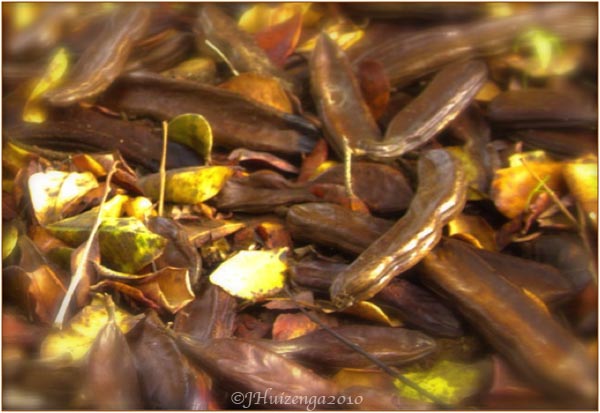 The carob tree The carob tree
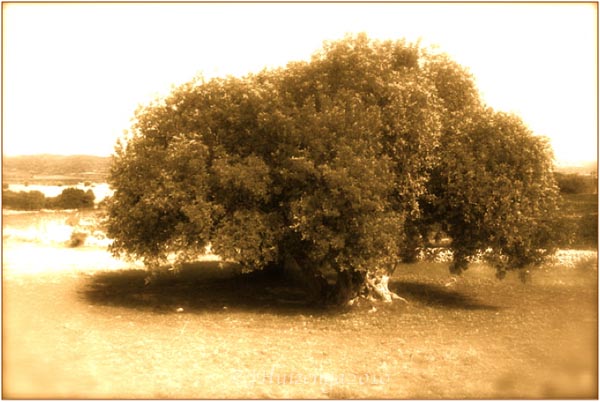 The carob farmer The carob farmer
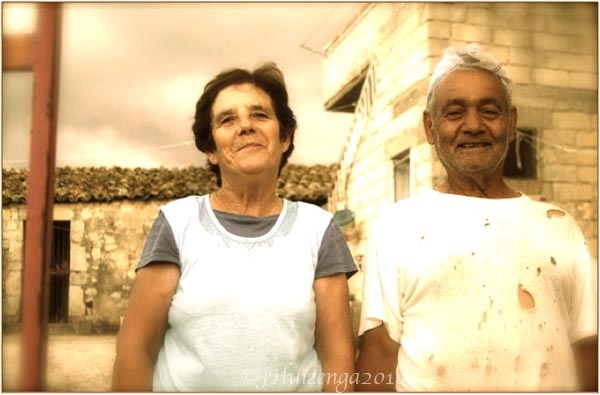
The carob harvest
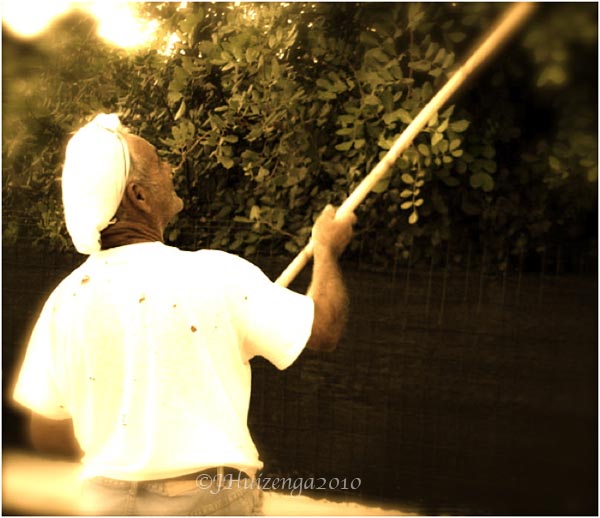
The farmer whacks at the tree with a long cane stick, and the fruit comes raining down. His wife presses a sackful on us. “Take it to America.”
Carobs, loaded with protein, are what kept Sicilians in this area alive during WWII. Locals ate so many that they couldn’t look at them for decades. But carobs are making a big comeback in the form of carob gelato, carob pasta, carob cake. Bite into them raw! Chewy and earthy, aren’t they?
Before we leave, the farmer says, “What’s the name of your president?”
“Obama.”
“Ah, si” he says. “Do you want to exchange him for ours? We will have Obama and you take Berlusconi.”
Thank you for the kind offer, we say, declining, and bid them addio.
***
Click to comment.
Click to subscribe.

September 13, 2010
September mornings are fresh as white sheets snapping on the line. I take long walks up and down stony, ringing steps.
Branches drip with overripe figs. I lean over derelict garden walls and push my arm through tangled vegetation to get at them, then bite into the crunchy redness like you’d suck a juicy orange wedge.

A confession: I didn’t really know a fig from a kumquat until a few years ago (only those gluey Fig Newton atrocities that turned up with some regularity in my school lunchbox). But I love them now. They’re high in fiber and potassium (which will bring your blood pressure down).
Go get figgy, folks! Tis the season. Pair them with a dollop of lush goat cheese and drizzle a blossomy honey on top. Oh, what a nice sticky mess.
***
Here are links to other fresh fig recipes from the New York Times:
Fig tart with caramelized onions
Braised chicken with figs
Grilled figs
What’s your favorite way to eat figs?
Click to comment.
Click to subscribe.
July 19, 2010
Sicilians love their mare in summer. There’s been a mass exodus from the inland baroque towns; everyone’s hit the beach. The odd thing is that when Sicilians “go on vacation,” they travel en bloc, with all their friends and neighbors. So Ragusani move 15 kilometers away to the summer village of Marina di Ragusa for July and August; Modicani move to Marina di Modica; people from Noto go to Marina di Noto—you get the picture.
“Why would you want to go on holiday to a place where you don’t know anybody?” asks a Ragusan friend when I express surprise at this herd behavior.
Those who can’t afford a second home in Marina pitch tents on the beach and mingle with extended families from sunup to sundown, gobbling up gelato and platefuls of pasta alla Norma. Just before the Festival of San Giovanni Battista on August 29, everyone migrates back to Ragusa, as if a mighty shepherd is herding them all back at once.
 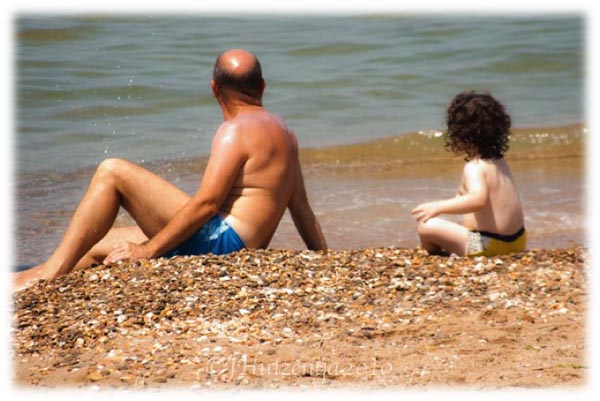 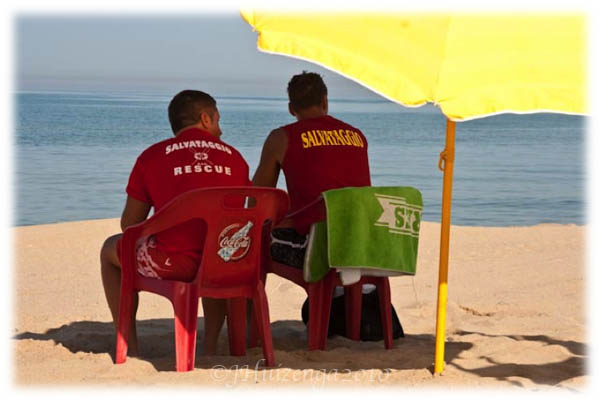  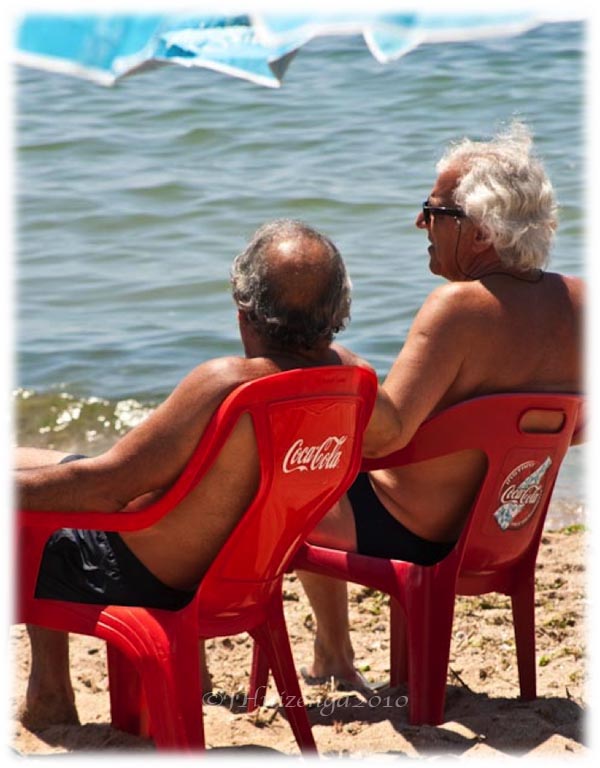
Click to comment.
Click to subscribe.
|
Subscribe to Baroque Sicily
Copyright reserved -
All photos and text on BaroqueSicily are Copyright of Jann Huizenga ©2009-2015, unless otherwise noted. Material may not be copied or re-published without written permission. All rights reserved.
|








 The carob tree
The carob tree The carob farmer
The carob farmer








